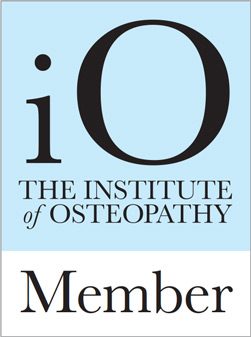 Osteopaths believe everyone can benefit from a tailored, whole-person approach to health. We are Allied Healthcare Professionals who take time to understand your individual history, circumstances and unique physiology, to support you to be as healthy as you can be.
Osteopaths believe everyone can benefit from a tailored, whole-person approach to health. We are Allied Healthcare Professionals who take time to understand your individual history, circumstances and unique physiology, to support you to be as healthy as you can be.
Osteopaths provide safe, effective treatment and care that aims to promote the health of patients. Using manual therapy, health advice and sometimes exercise, tailored to the needs of the individual, people of all ages see osteopaths, from babies to the elderly.
As highly trained healthcare professionals, we are experts in the musculoskeletal (MSK) system – that is the muscles, joints and associated tissues and their relationship with other systems of the body.
People who visit an osteopath consistently report high satisfaction with the care they receive1, expressing high confidence in the treatment and advice of their osteopath2, with rates in excess of 90% for both satisfaction and trust.
They also work closely with other healthcare professionals such as consultants, GPs, nurses, midwives, physiotherapists. You can find your nearest osteopath from here
What do osteopaths do?
Osteopaths will use a wide variety of gentle hands-on techniques that focus on releasing tension, improving mobility and optimising function, together with providing useful health advice and exercise if required.
They will also work with, or refer you to, other healthcare professionals as needed to ensure you receive optimum care. They take the time to understand each patient – your unique combination of symptoms, medical history and lifestyle. This helps to make an accurate diagnosis of the cause of your issue, (not just addressing the site of discomfort), and formulate a treatment plan with you that will achieve the best outcome.
Watch the video below to find out more about osteopaths and what they do.
What you can expect from visiting an osteopath
When visiting an osteopath for the first time, it is natural to feel a little unsure of what to expect. The following information explains what happens and answers any questions you may have.
Osteopaths are healthcare professionals who are specifically trained in diagnosing health issues. At the start of your first appointment, your osteopath will ask you questions about your medical history and lifestyle, as well as any symptoms you may be experiencing. This is very important as it will help them to make an accurate diagnosis and suggest appropriate treatment.
They will write down what you tell them in your records. These will be treated as confidential in accordance with standards of practice set out by the General Osteopathic Council and the General Data Protection Regulation (GDPR). If you wish, you may request a copy of your notes, but you may be charged an administration fee for this.
Your osteopath will need to examine the area(s) of your body causing discomfort. Sometimes the cause of the problem may be in a different area to the pain, (For example, pain in your lower arm may be linked to the nerves in your neck) so they may need to examine your whole body. They will need to feel for any tightness in the muscles and stiffness in the joints and may need to touch these areas to identify problems. They will explain what they are doing as they go along.
If you are uncomfortable with any part of this, you have the right to ask them to stop at any stage, without prejudicing your future treatment.
As with any healthcare appointment, it may be necessary for your osteopath to ask you to remove some clothing. This is so they can see and touch the areas of the body causing you concern. Your osteopath will want you to feel at ease, therefore if you feel uncomfortable undressing to your underwear, your osteopath may be able to suggest wearing clothing, such as shorts and a t-shirt, or close-fitting garments, that will enable them to work effectively, so please do discuss this with them.
You may wish to seek treatment from an osteopath of the same sex as yourself. You are also welcome to ask a friend or relative to accompany you and be present throughout your appointment.
Your osteopath will make a diagnosis and discuss a course of treatment with you. This may involve further visits for manual therapy – a range of gentle hands-on techniques that focus on releasing tension, stretching muscles and improving mobility. Together with exercises that you can do at home and helpful advice designed to help you relieve or manage your pain, keep active and maintain the best of health. They will discuss the likely cost of this and ask for your consent to begin treatment.
Most osteopaths will begin your treatment at your first appointment, but sometimes they may require further tests first i.e. blood tests or scans. Occasionally they may diagnose an illness that they are unable to treat and may refer you to your GP or another appropriate health professional.
Osteopathic treatment is usually a very gentle process and osteopaths work very hard to make treatment as painless as possible, but you may experience some discomfort during and after treatment. Your osteopath will warn you if they think that the technique that they are about to use is likely to be uncomfortable and will stop if you tell them that you are feeling too much pain.
Following treatment you may experience some mild soreness in the area of their body that was treated, this will normally will go away within 48 hours. If you experience serious or unusual symptoms after treatment you should contact your osteopath straight away for advice.
How can osteopaths help me and how do I get referred?

People commonly visit osteopaths for MSK conditions, such as back, neck, joint, muscle and arthritic discomfort. Osteopaths have a well-deserved, evidence-based reputation for expertise in the treatment of these conditions. People also visit osteopaths for a variety of other health reasons including neuromuscular conditions such as sciatica, digestive issues, headaches and migraine prevention. To find out more about how osteopaths can help, please click here.
Most patients visit an osteopath in a private clinic, which you can do without a referral from your GP. Most private practice osteopaths will have appointments available within three days. Consultation fees vary depending on the osteopath and the treatment required, so do enquire when booking your consultation. Many osteopaths also work with private health insurance companies. Ask your health insurance provider or your osteopath for more information. In addition to private clinics, osteopaths are increasingly working alongside GP’s and other healthcare professionals to provide osteopathic services through the NHS. Access to osteopaths through the NHS does, however, vary according to where you live.
To find your nearest osteopath please visit our Find an Osteopath page.
Training and registration

Osteopaths are regulated by law and recognised as an allied health profession by NHS England. This gives them a similar status to dentists or physiotherapists and guarantees the equivalent high level of care.
By law, an osteopath must be registered with the General Osteopathic Council (GOsC) to practise in the UK.
Before an osteopath can obtain registration, they must attain specialist degree-level training, either a Bachelor of Science (BSc.) or integrated Masters (MOst.), plus complete over 1000 hours of clinical placements (direct patient contact time).
To maintain their registration with GOsC, which is renewed annually, osteopaths must meet mandatory continuous professional development (CPD): keeping skills and knowledge up-to-date and maintaining high standards of professional development.
About iO Members
The iO is the professional membership organisation for osteopaths. We represent over two-thirds of registered UK osteopaths in the UK. Our members operate in line with the iO Patient Charter, the values and purpose of which demonstrates their commitment to providing the highest quality service and care to their patients.
We hope that you have found this information useful. If you haven’t yet arranged an appointment with an osteopath – you can search for one in your area using here or by telephoning 01582 488455.



